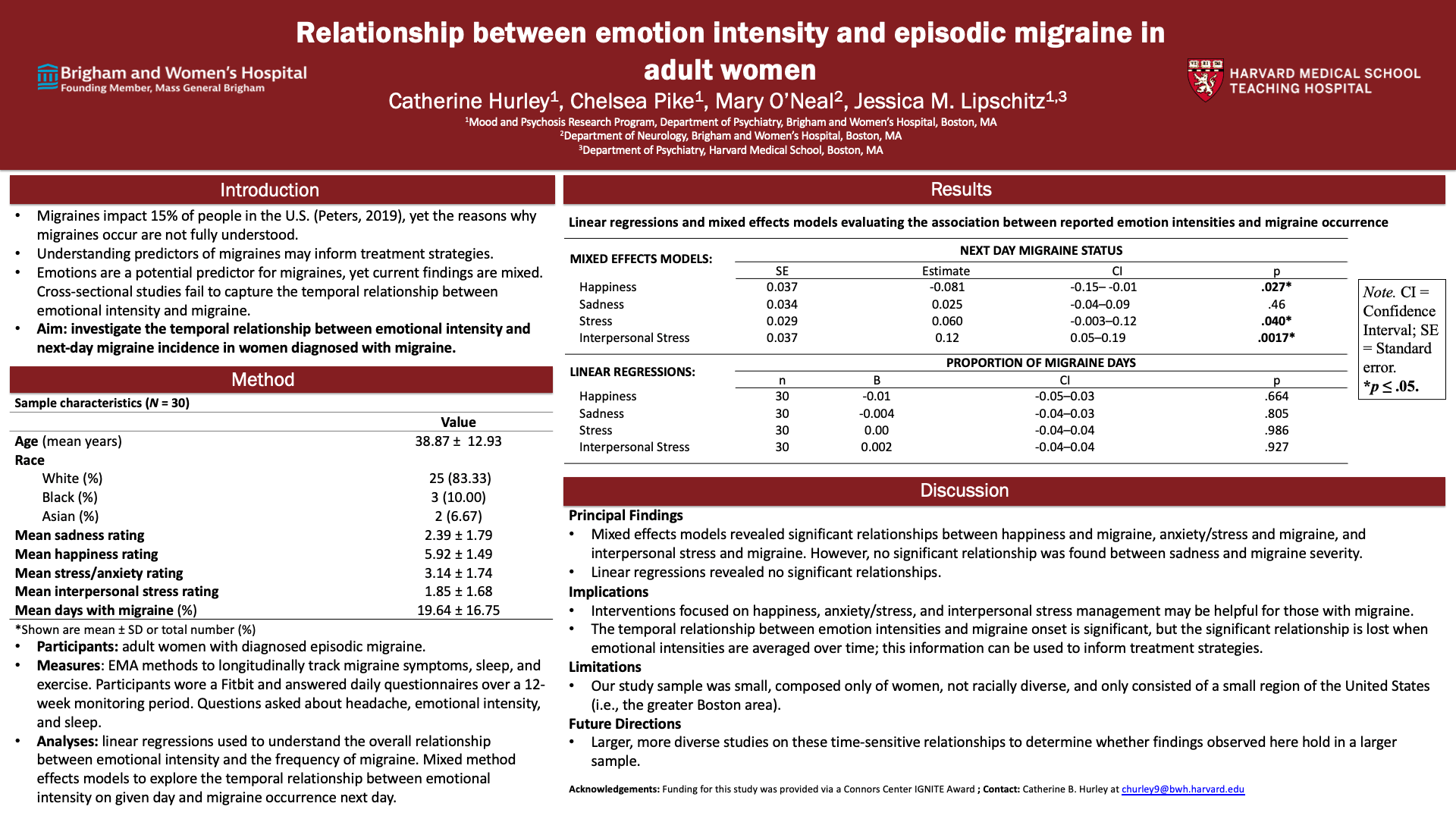Scientific Abstract
Background: Identifying factors related to migraine onset is essential to effective treatment. It would allow patients to take measures to reduce the likelihood of migraine occurrence. The experience of intense emotions is a potential factor affecting migraine onset. We aimed to explore the relationship between day-to-day experience of emotions (specifically intensity of sadness, happiness, anxiety/stress, and interpersonal stress) and migraine onset.
Methods: We recruited 30 adult women with episodic migraine to engage in a 12-week monitoring period involving wearing a Fitbit and answering daily questionnaires via mobile app. Daily questionnaires asked about headache occurrence and triggers, intensity of emotions experienced that day (i.e., emotional intensity) and sleep. We conducted a series of linear regressions to understand overall relationship between emotional intensity and the onset of migraine over the 12-week monitoring period. Next, we conducted mixed effects models to explore the temporal relationship between participants’ reported emotional intensity on a given day and migraine occurrence the next day.
Results: Linear regressions for emotional intensity and migraine occurrence were not significant. Mixed effects models showed emotion intensity and migraine onset were significantly associated for happiness (estimate = -0.081; p = 0.027), anxiety/stress (estimate = 0.060; p = 0.040), and interpersonal stress (estimate = 0.120; p = 0.0017), but not for sadness (estimate = 0.025; p = 0.46).
Conclusions: Findings suggest that high levels of anxiety/stress and interpersonal stress predict onset of migraine the next day. Similarly, low levels of happiness predict onset of migraine the next day. These relationships were no longer significant when we averaged emotional intensity over the 12-week monitoring period. Taken together, findings support the need for longitudinal research evaluating the temporal relationship between emotion and migraine occurrence, as important relationships may be lost with cross-sectional studies. Additionally, they point to the potential role of strong negative emotions and absence of positive emotions in producing migraine.
Search posters

